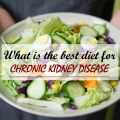Kidney Diet - Free Tips for a Practical Kidney Disease Diet
A kidney disease diet is a diet that is structured in order to nurse our kidneys back to normal health. No matter what we do to care of our kidneys, disease can still strike without warning.
Kidneys are vital organs in our bodies. They are tasked with the filtration of the blood to remove impurities which can be very harmful. Although small in size, they have a very leading role to play in our well-being.
Being diagnosed with renal disease can be very traumatic. Negative thoughts of death and so on can start to play havoc with your life. However this not need be the case. Once disease is certified, your kidneys need special care to nurse them back to health. The doctor responsible for identifying kidney disease will usually advise you to seek out the expertise of a qualified dietician. Through the guidance of the dietician, a special diet will be drawn up tailored to your needs and allergies (if any). In this manner, it might be possible to end up with healthy kidneys.
A frequent complaint is that a kidney disease diet drawn up by a dietician is not easy. This is quite true as it requires discipline and will power. Here are some free tips for a practical kidney disease diet:
You should find out your ideal body weight. This is because the onset of disease will sometimes result in fluctuations in your body weight. Through the guidance of your dietician, you will then have to make adjustments to try to stay close to your body weight. This is usually accomplished by means of increasing or decreasing your calorie intake.
Get to know your ideal protein intake in these circumstances. Kidneys that are not functioning well will have problems removing waste products derived from protein absorption. The most common waste product is urea. Your dietician will have factored your protein intake in drawing up a specialized renal disease diet. Foods high in protein such as meat, milk and poultry products are more likely to be scaled down. On the other hand, protein intake from plant sources might be increased to compensate for the reduction in foods having a high protein content.
Refrain from buying your own vitamins and minerals. At this delicate stage, you have to consult a doctor. Do not be tempted to be your own doctor. What might be healthy when your kidneys are healthy might be hazardous, or outright damaging, when your kidneys are not functioning properly.
Most probably your dietician will have advised that you reduce fluid intake. As mentioned before, the kidneys' main function is to filter the blood. Diseased kidneys usually result in more fluid because the filtration process might be slow or inefficient. Your doctor will likely suggest that you drink only when really thirsty and reduce salt intake.
Please be reminded that these type of diets have to be always drawn up in consultation with a qualified dietician. This is because every person is unique in physique, metabolism and dietary requirements. You might also be required to follow supervised medication for a period of time. Be positive and just follow the dietician's recommended kidney disease diet.






